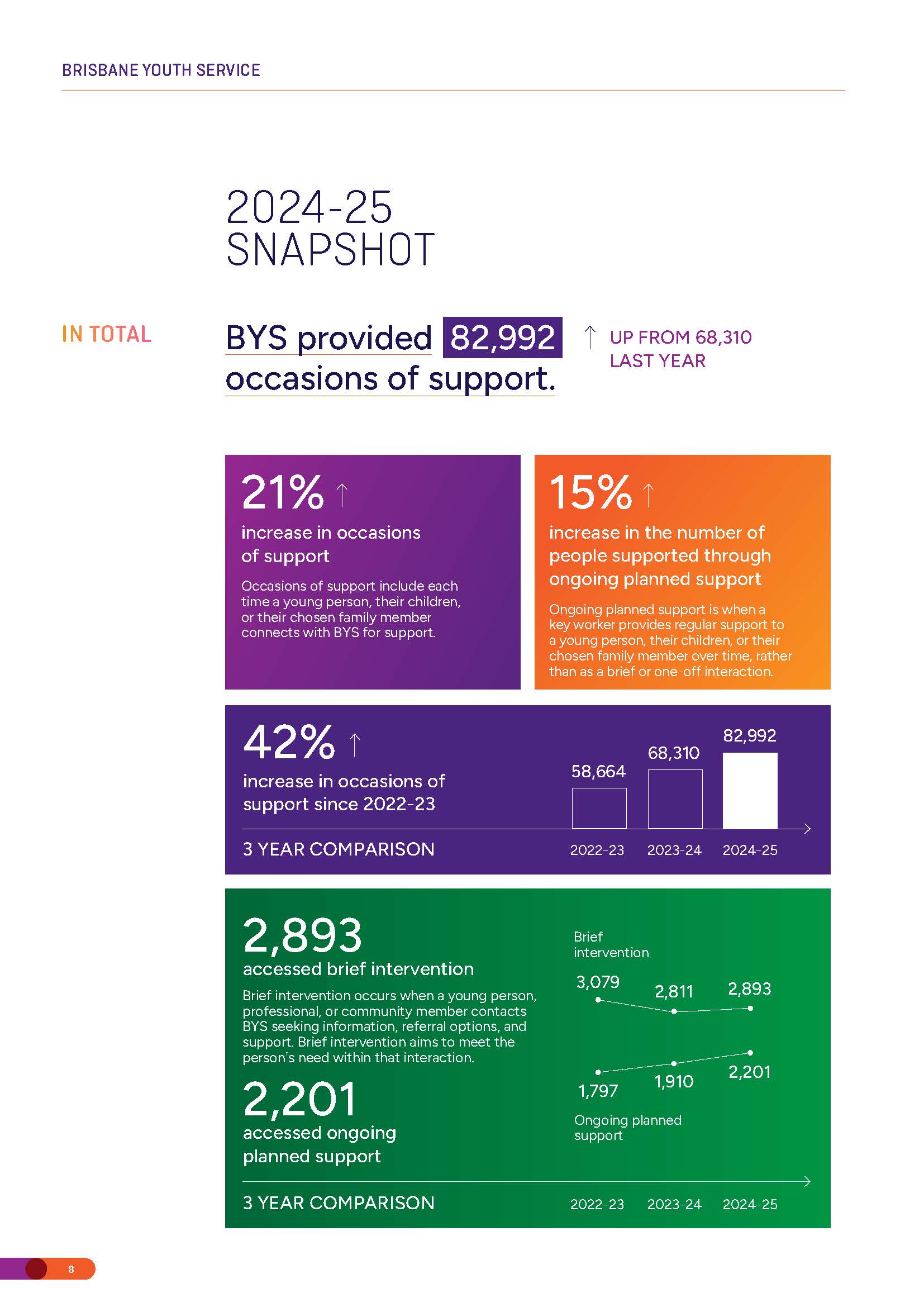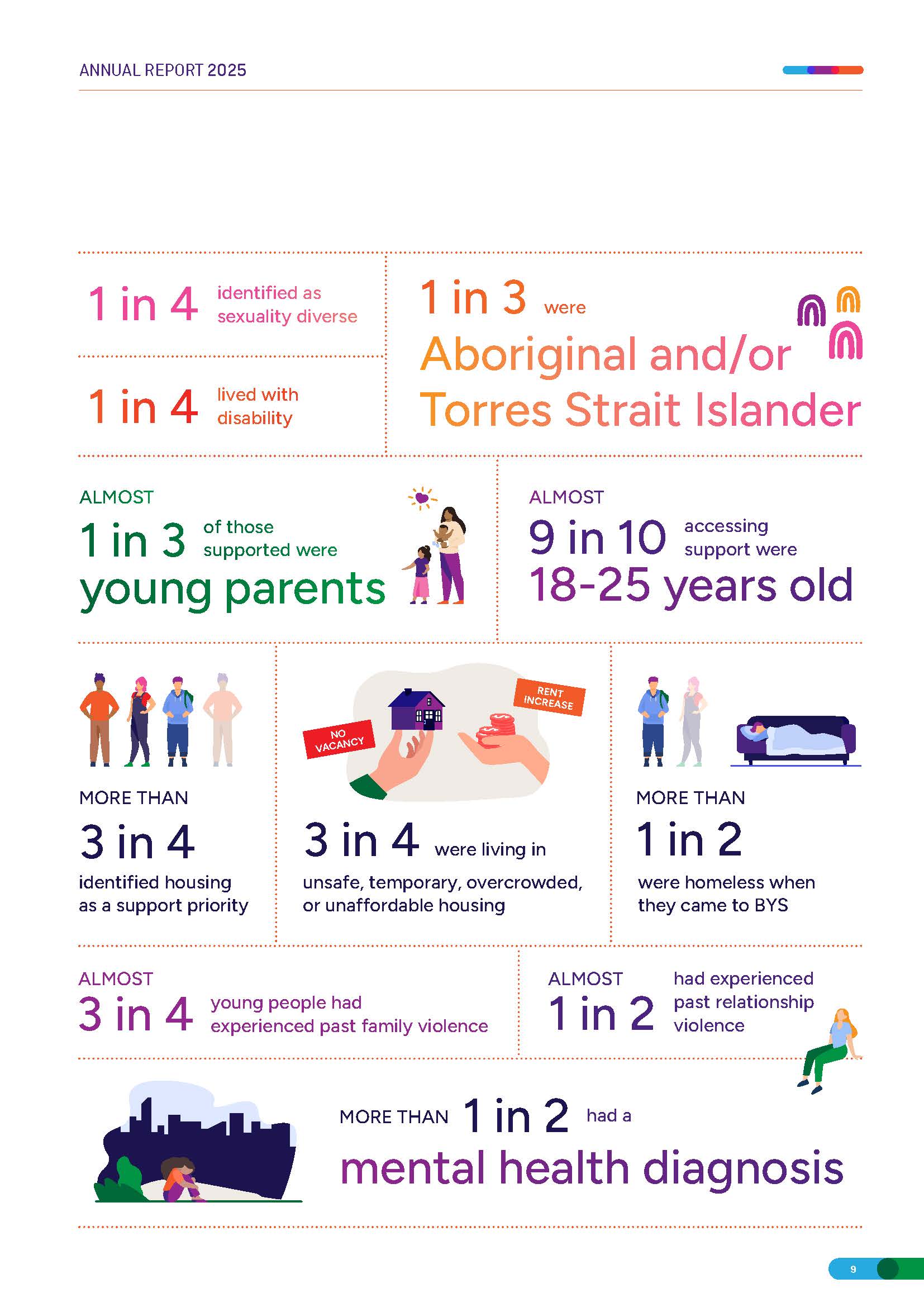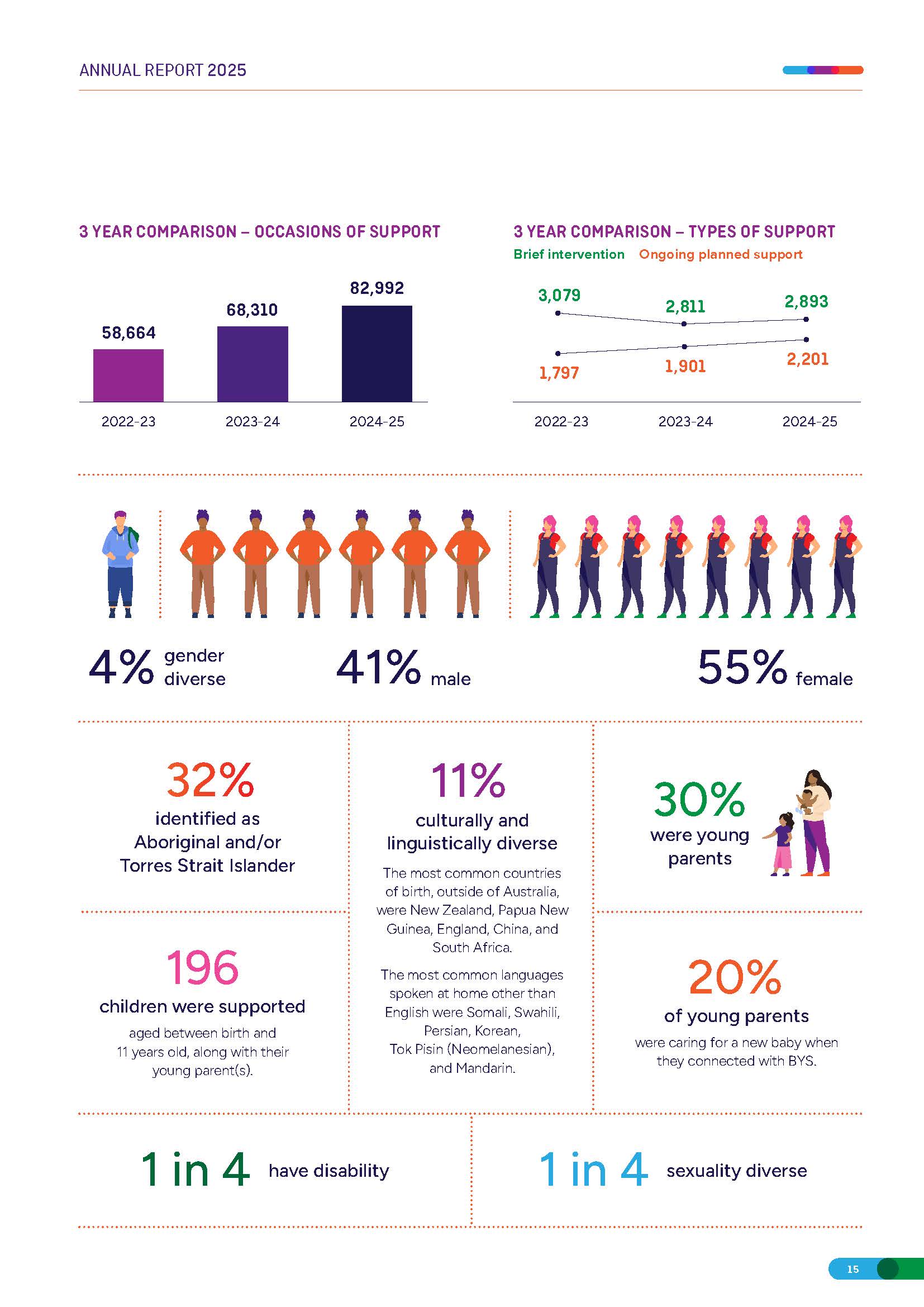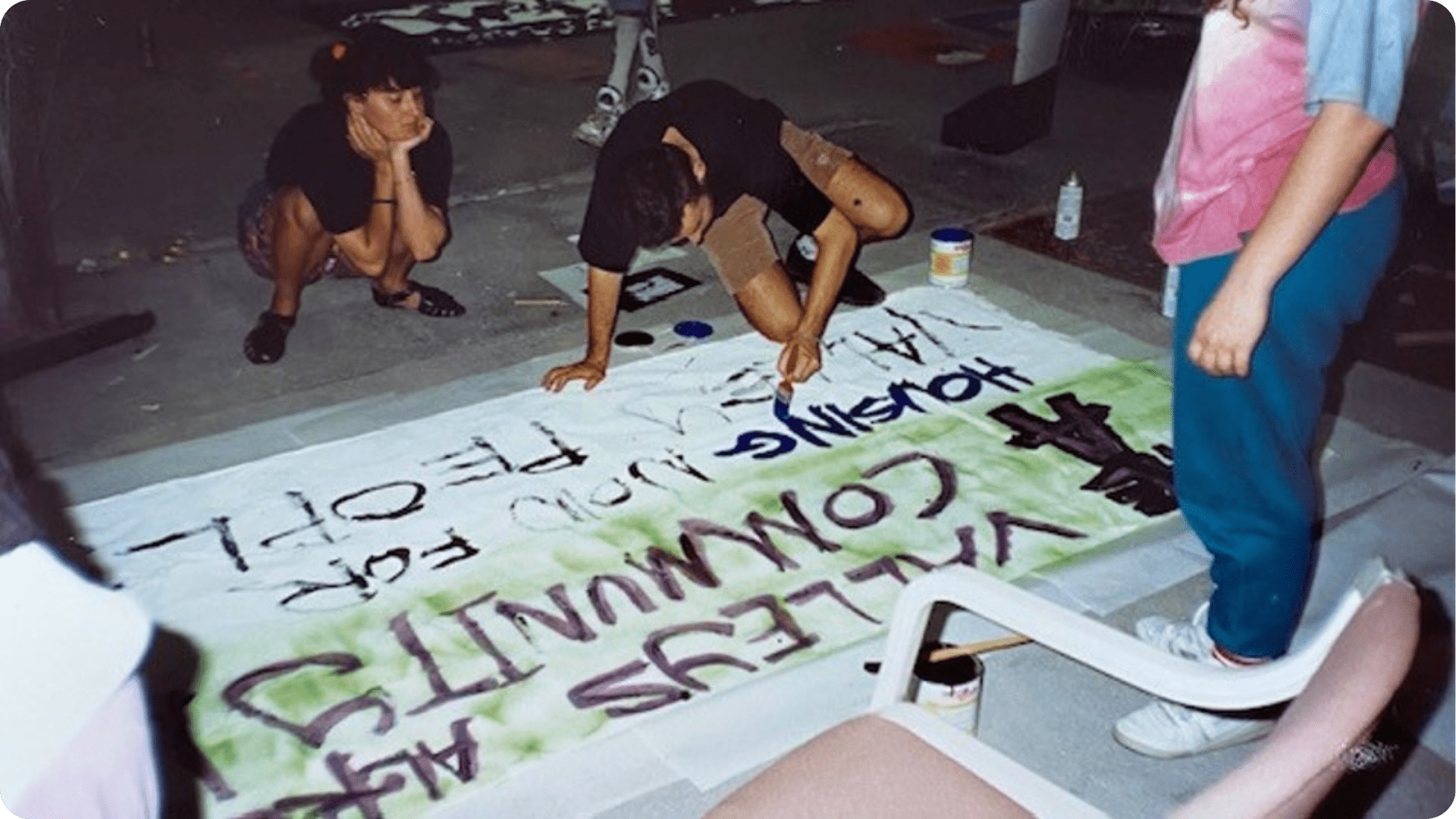The young people supported by Brisbane Youth Service (BYS) come from diverse backgrounds. They have varied life experiences and face systemic barriers to meeting their basic needs.
Young people’s top concern is their housing. It is often unstable, unsuitable, unaffordable, or unsafe.
Housing
In 2024–25, 1 in 2 young people who came to BYS were homeless (51%). This proportion has steadily climbed since 2021–22, highlighting the ongoing impact of the housing and cost-of-living crises for young people in Brisbane.
Couch surfing continues to be the most common form of homelessness for young people, experienced by just over a quarter (26%) of young people accessing support. It involves temporarily staying with friends, relatives, or acquaintances without a secure place to live. While it may seem safer than sleeping rough, couch surfing often exposes young people to serious risks, including physical, sexual, and financial exploitation.1
-
78% came to BYS asking for help with housing.
-
3 in 4 young people were living in unsafe, temporary, overcrowded, or unaffordable housing moved into private rental/ share housing moved into public/ community housing moved in with family.
-
Over half of young people (56%) said their housing situation was a crisis/serious situation.
1. Hail-Jares, K., Vichta-Ohlsen, R., & Nash, C. (2021). Safer inside? Comparing the experiences and risks faced by young people who couch-surf and sleep rough. Journal of Youth Studies, 24(3), 305–322.
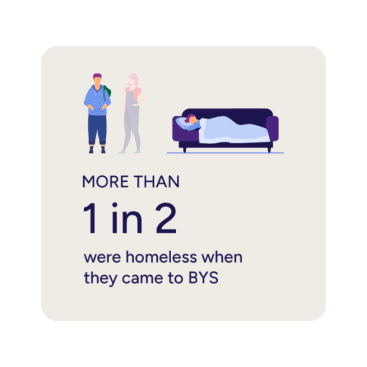
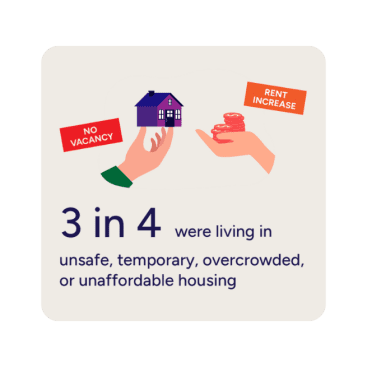
After support from BYS
- 7 in 10 young people who were homeless when they came to BYS were able to move into more secure forms of housing.
- 27% moved into private rental/sharing housing.
- 23% moved into public/community housing.
- 17% moved in with family.
- There was a 70% decrease in young people living in unsafe housing after support.

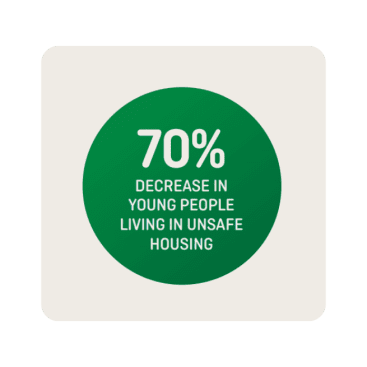
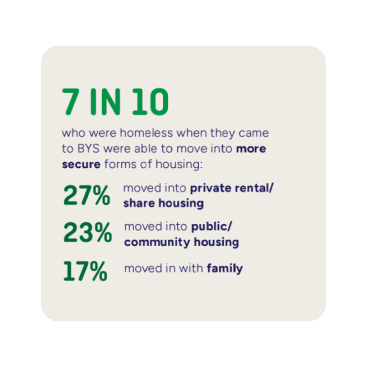
“There’s nothing better than feeling safe and that you have your own sanctuary to return to after work”
– Young Person
Violence
In 2024-25, almost half of the young people supported by BYS had experienced past intimate partner violence and almost three-quarters had experienced past family violence. These forms of violence have remained stable over the past five years, highlighting the need for young people who are experiencing or at risk of homelessness to have continued access to domestic, family, and sexual violence (DFSV) support. In 2024-25, of the young people supported by BYS:
-
Almost 3 in 4 young people had experienced past family violence.
-
Almost 1 in 2 had experienced intimate partner violence.
-
34% had experienced physical assaults or abuse.
-
18% acknowledged at assessment that they had used violent or threatening behaviours.
-
14% had experienced sexual abuse.
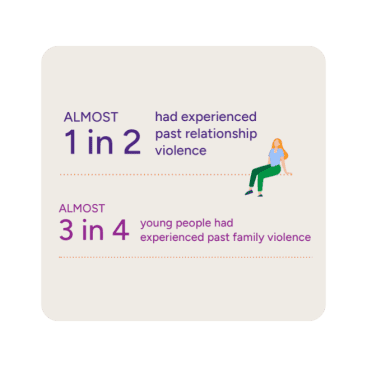
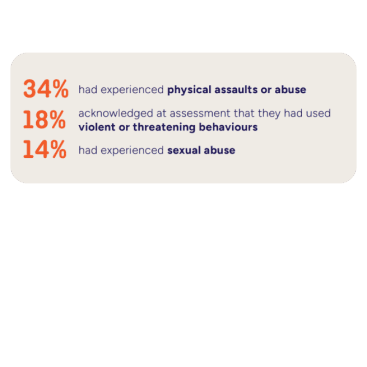
After support from BYS
-
Just over half of young people (51%) described their violence situation as a bit or much better.
-
There was a 76% decrease in the proportion of young people describing their experiences of violence as a crisis or serious situation.
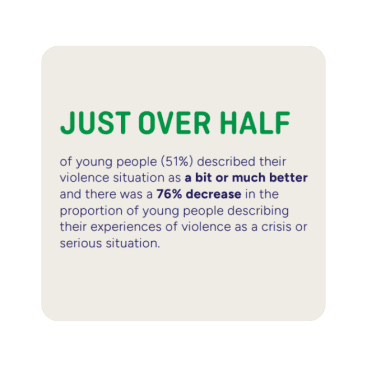
“BYS helped me on my worst days and gave me hope for my future.”
– Young Person
Mental health
Nearly half of all young people (44%) who accessed BYS support described their mental health situation as poor or very poor.
Mental health issues don’t exist in isolation. They often stem from and contribute to other complex issues like trauma, violence, homelessness, lack of support, and financial stress. Without the right support, poor mental health can become a major barrier to young people accessing and maintaining safe, stable housing. BYS provides early, wraparound support that helps young people feel safe, heard, and connected. With the right help at the right time, young people can recover, build confidence, and take steps toward a more stable future.
Just over half of young people who came to BYS (55%) shared that they had a mental health diagnosis. The most common diagnoses were anxiety (71%), depression (68%), and PTSD (33%) .
In 2024-25:
- 2 in 5 shared they had suicidal ideation.
-
Nearly 1 in 3 (31%) identified self-harming behaviours.
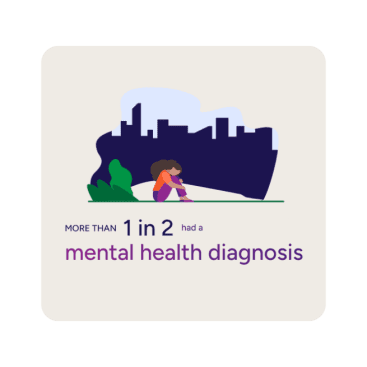
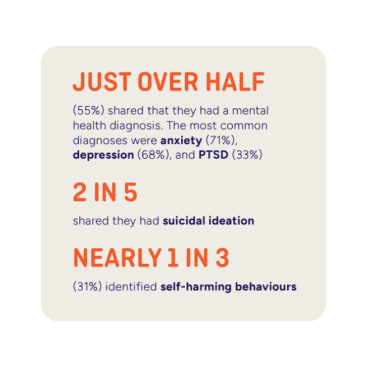
After support from BYS
With BYS support, young people report positive changes in their mental health. In 2024-5:
-
70% of young people said that their mental health improved with BYS support.
-
and good or great mental health tripled after support.
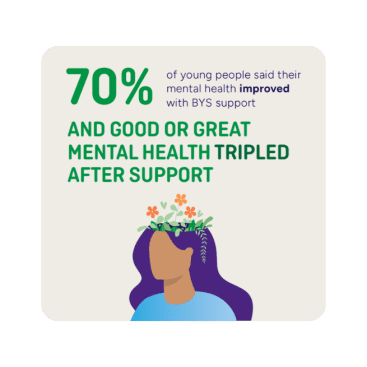
“I’m having a good experience at BYS and getting the support I need with mental health…I feel like I am making the progress needed to improve my life and achieve my goals.”
– Young Person
